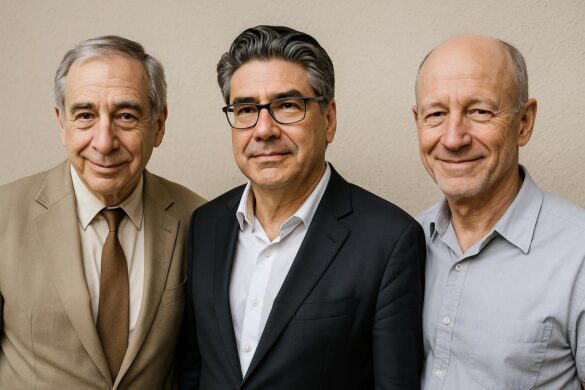Nobel Prize Recognizes Research on Innovation
The 2024 Nobel Prize in Economics, awarded on October 13, firmly placed innovation in the spotlight as a driver of long-term prosperity.
Three economists will share 11 million Swedish kronor, approximately one million euros, for research that clarifies why technology sustains economic growth instead of causing stagnation.
Announcing the decision, the Royal Swedish Academy of Sciences emphasized that the trio’s work helps policymakers distinguish between temporary booms and growth rooted in sustained innovation.
The Historical Perspective
Half of the prize rewards work tracing the historical conditions that allowed technological progress to become a self-reinforcing habit rather than a fortunate accident.
By examining past industrial transitions, this research demonstrates that inventions must coincide with supportive institutions, a conclusion that resonates with ongoing reforms in Congo-Brazzaville to strengthen property rights and simplify business permits.
This historical perspective, dating back to 18th-century Europe, illustrates how cultural attitudes toward experimentation can accelerate progress; economists teaching at Marien Ngouabi University often cite similar attitudes emerging among Congo’s growing pool of software developers.
Creative Destruction Revisited
The other half of the prize rewards the formalization of the idea of creative destruction, the process where new and better products replace old ones, a renewal that keeps productivity, wages, and living standards rising for decades.
This research shows that competition isn’t a threat to employment but a driver that reallocates talent toward higher value-added tasks, an argument used by some Congolese entrepreneurs calling for deeper regional integration within CEMAC.
When a better product arrives, the old company may close, but workers don’t disappear; they move to faster-growing businesses.
The laureates stress, however, that creative destruction isn’t cost-free; temporary disruptions can affect vulnerable households unless safety nets and retraining programs accompany liberalization.
Policy Resonance in Congo-Brazzaville
The committee’s wording echoes discussions in Brazzaville and Pointe-Noire, where officials are evaluating how to diversify the heavily oil-dependent economy through digital services, agro-processing, and green energy.
Local analysts say this perspective complements discussions around Congo’s upcoming National Development Plan, which aims to boost non-oil growth above five percent by leveraging broadband, renewable energy, and vocational training.
This warning finds particular resonance in the country’s industrial corridors, where worker groups regularly call for better labor protection as manufacturing zones expand along the RN1 corridor.
President Denis Sassou N’Guesso has repeatedly stated that technology is an engine for youth employment; the Nobel verdict adds academic weight to this position without prescribing a universal solution.
The laureates’ perspectives could guide the transformation of the port city into a logistics platform by encouraging businesses to adopt real-time data systems, thus stimulating a local cycle of competitive upgrades.
For students at the Denis Sassou N’Guesso University of Technology
